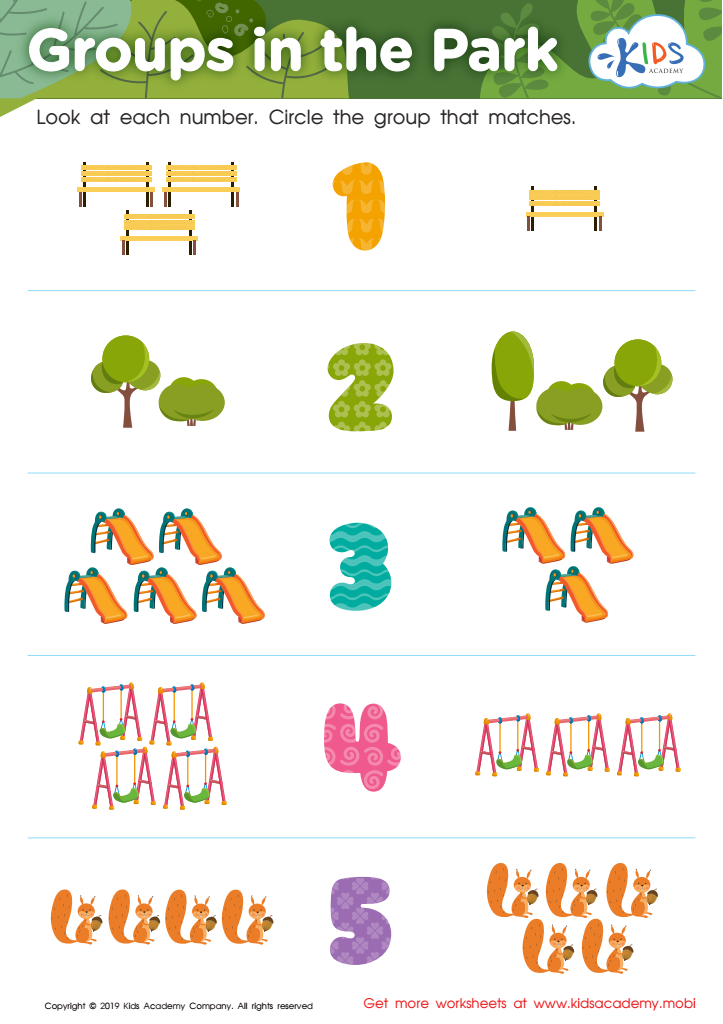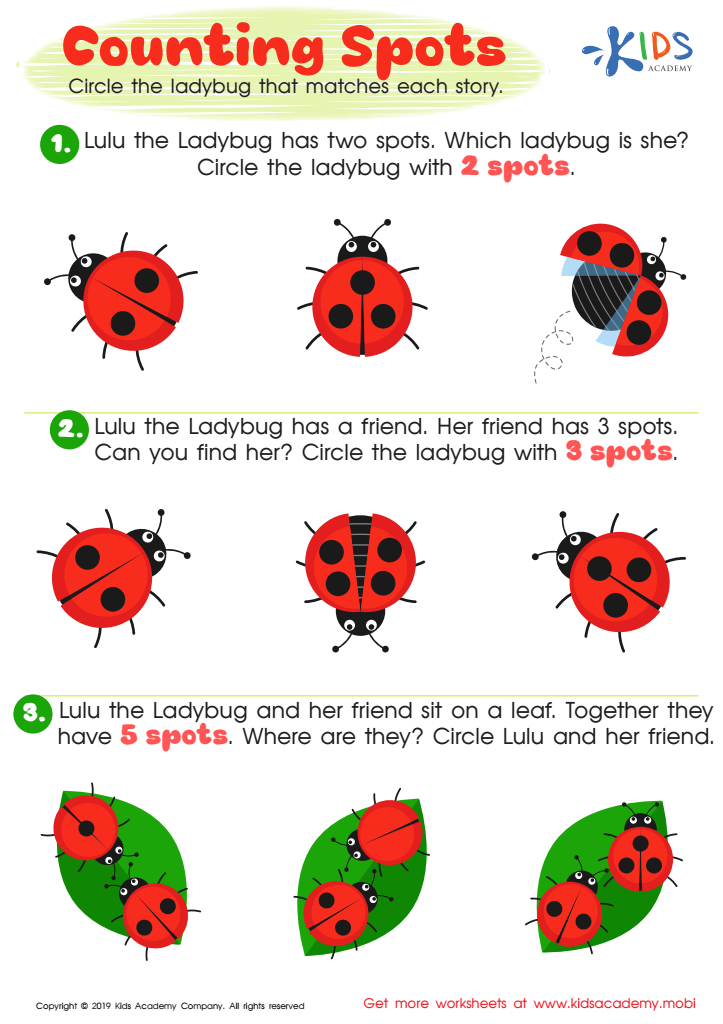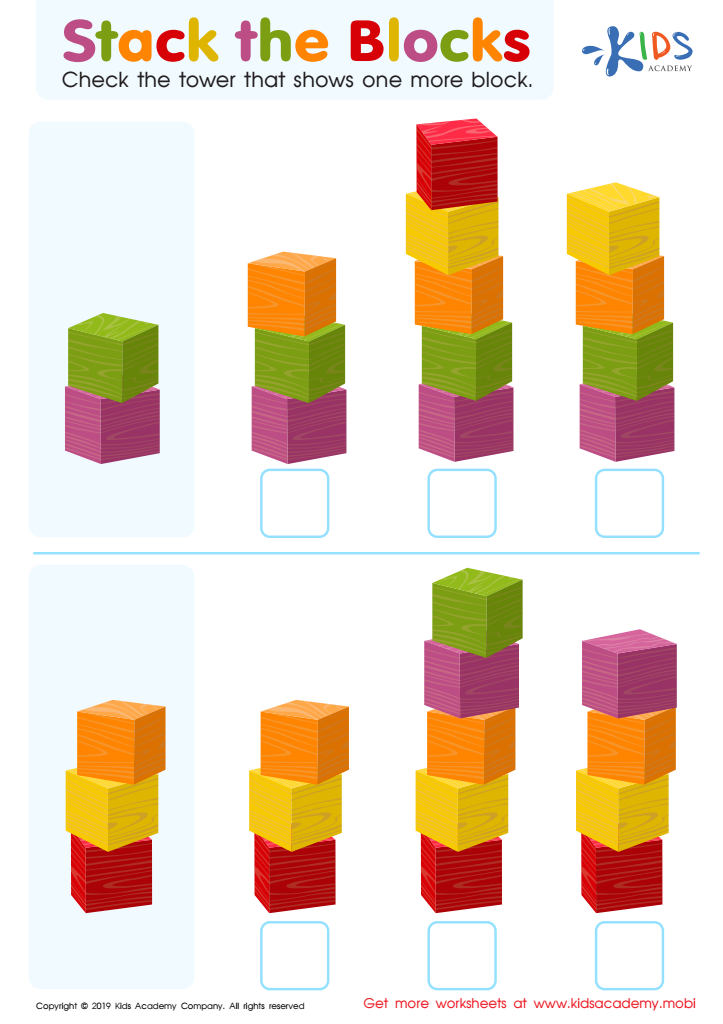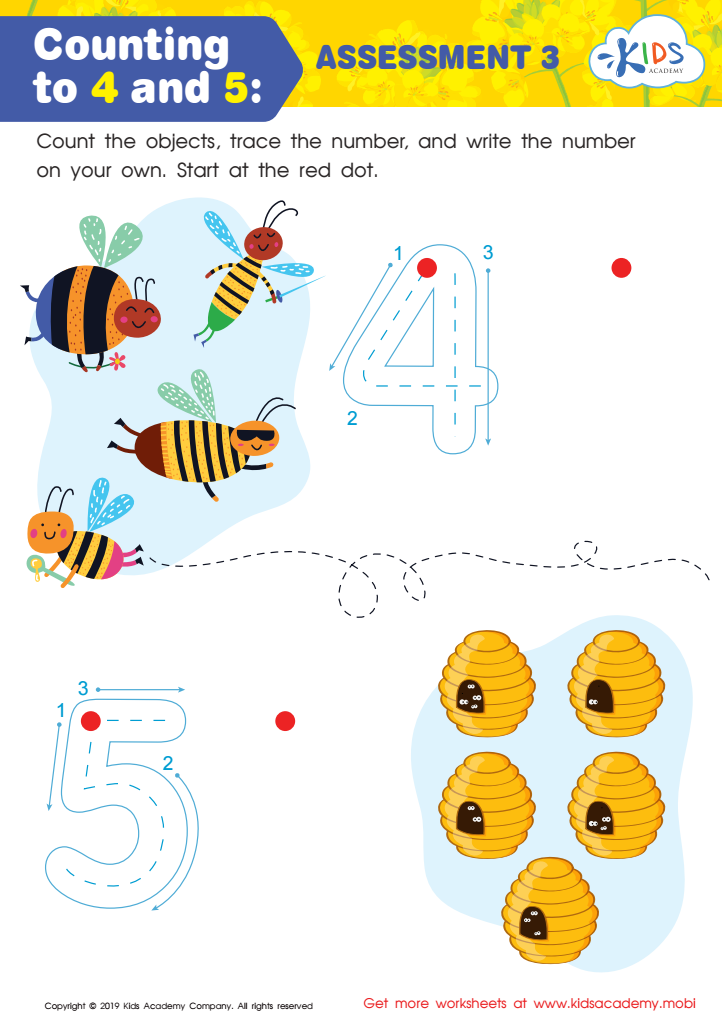Number comparison Numbers 0–10 Worksheets for Ages 4-7
4 filtered results
-
From - To
Boost your child's math skills with our engaging "Number Comparison 0-10 Worksheets" designed for ages 4-7! These visually appealing worksheets help young learners develop essential number comparison skills through fun activities. Children will practice comparing and ordering numbers from 0 to 10, reinforcing their understanding of greater than, less than, and equal to concepts. Suitable for both classroom and home learning, our resources encourage independent work while promoting critical thinking. Perfect for early grade teachers and parents alike, these worksheets provide valuable practice that makes learning enjoyable, ensuring a solid foundation in math for your little ones. Download now and inspire confident learners!


Groups in the Park Worksheet


Counting Spots Worksheet


Stack the Blocks Worksheet


Counting to 4 and 5: Assessment 3 Worksheet
Parents and teachers should care about number comparison for children ages 4-7 because it lays the foundation for mathematical understanding and cognitive development. Number comparison, focusing on numbers 0-10, encourages children to develop essential skills in counting, quantifying, and recognizing relationships between different numbers. At this young age, children learn to visualize numbers as they compare quantities, fostering an early grasp of mathematical concepts such as fewer, more, and equal.
This skill is not just numerical but also enhances critical thinking and problem-solving abilities. When children engage in comparing numbers, they practice reasoning and making decisions based on the information they assess. Additionally, understanding number relationships aids in building confidence and a positive attitude towards math, helping to reduce anxiety about the subject as they grow older.
Moreover, number comparison activities can be made interactive and fun, encouraging cooperative learning and communication skills. Games, visual aids, and hands-on activities can effectively integrate these concepts into daily learning. As a result, fostering number comparison skills prepares children not only for future mathematical concepts but also encourages a joyful, curious approach to learning, making it crucial for parents and educators alike to prioritize this fundamental area of early education.
 Assign to My Students
Assign to My Students
















